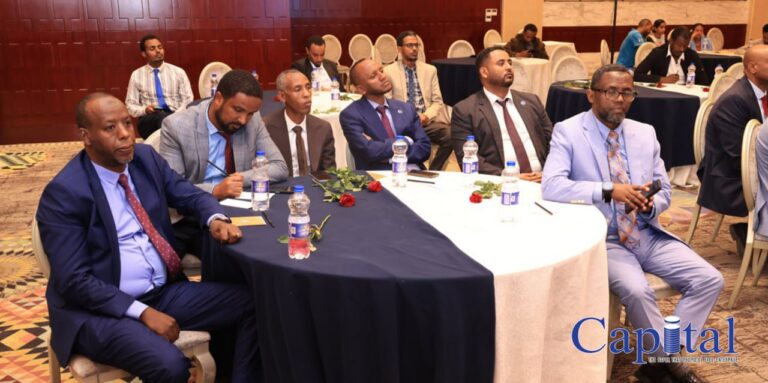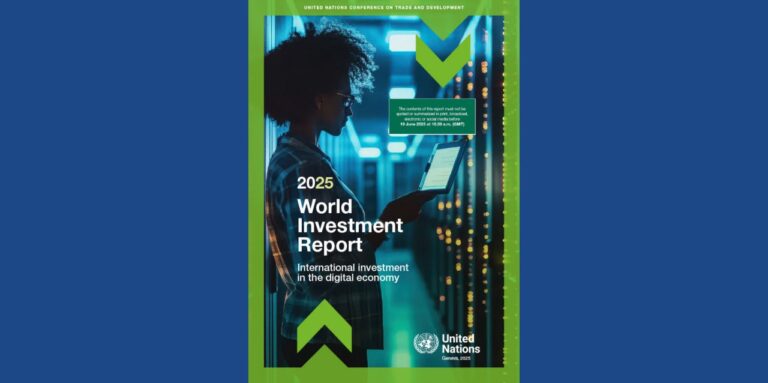The House of People’s Representatives this week passed a proclamation granting conditional immunity to investigators engaged in money laundering and terrorism financing probes. Under Article 5/15 of the new law, investigators are shielded from criminal prosecution for offenses—excluding murder—committed during their duties, so long as such acts were involuntary or unavoidable. While the stated aim is to empower law enforcement in the fight against financial crimes and terrorism, this legislation raises profound concerns about accountability, human rights, and Ethiopia’s obligations under international law.
At its core, the new proclamation creates a legal grey zone. It gives state agents a sweeping shield from prosecution for potentially serious crimes, provided they claim their actions were “beyond their control or without their consent.” This is not a minor technicality. It is a fundamental shift in the balance between state power and individual rights—a shift that, if left unchecked, could erode the very foundations of the rule of law.
International legal standards recognize some forms of immunity for state officials, particularly diplomats and foreign representatives, to ensure the effective functioning of international relations. However, such immunities are narrowly defined and come with clear limitations. Even diplomats are required to respect the laws of the host country, and immunities can be waived in cases of serious crimes.
More relevant to the Ethiopian context is the debate over immunity for criminal conduct during undercover investigations. The United Kingdom’s Covert Human Intelligence Sources (Criminal Conduct) Act 2021, for example, allows certain authorities to authorize criminal conduct by undercover agents, but this has been met with significant controversy and demands for strict oversight. The international community has consistently warned that unchecked immunity risks enabling abuse, undermining public trust, and violating fundamental rights.
The most troubling aspect of Ethiopia’s new law is the precedent it sets. Granting blanket immunity to state agents—even with the caveat of excluding murder—echoes the legal architecture that has enabled impunity for serious human rights violations elsewhere. The international prohibition of torture, for example, is a jus cogens norm: a peremptory rule from which no derogation is permitted. Courts and human rights bodies have repeatedly held that state immunity cannot shield officials from accountability for torture and other grave abuses.
The logic is clear: if the law allows agents to escape prosecution for acts committed “involuntarily” or “unavoidably,” what safeguards exist to prevent those acts from including torture, cruel treatment, or other serious abuses? The risk is not hypothetical. History is replete with examples of states using the language of necessity or national security to justify the unjustifiable. Immunity provisions, when left unchecked, have been used to excuse torture, enforced disappearances, and other violations that international law unequivocally prohibits.
Supporters of the new proclamation may argue that undercover operations are essential in combating sophisticated financial crimes and terrorism. They may point to international examples where limited immunity is granted to protect agents working in dangerous, high-stakes environments. But the international norm is clear: such immunity must be strictly limited, subject to judicial oversight, and never extend to serious human rights violations.
This law’s broad language—shielding investigators from prosecution for any act except murder, so long as it was “unavoidable”—is dangerously vague. It opens the door to abuse, makes accountability nearly impossible, and undermines the principle that no one is above the law.
To draw a parallel: if a state were to pass a law granting immunity to officials for acts of torture committed during investigations, the international community would rightly condemn it as a violation of peremptory norms. The law, by offering blanket immunity for a wide range of offenses, risks falling into the same trap. It creates a culture of impunity, where the ends justify the means, and where victims of abuse are left without recourse.
Ethiopia has legitimate concerns about money laundering and terrorism financing. But the solution cannot be to weaken the rule of law or abandon international standards. Effective law enforcement and respect for human rights are not mutually exclusive; in fact, they are mutually reinforcing.
The government should revisit the proclamation and introduce robust safeguards such as clearly defining the scope of permissible conduct, the limits of immunity and ensure that victims of abuse have access to justice and effective remedies, and explicitly prohibit immunity for acts that violate international human rights norms, including torture, cruel treatment, and arbitrary detention.
Ethiopia’s partners and the international community must also speak out. Silence in the face of creeping impunity is complicity. Upholding the rule of law and protecting human rights are not optional—they are obligations under international law.
The government’s desire to strengthen its fight against financial crimes is understandable. But granting investigators near-blanket immunity is not the answer. International experience shows that unchecked immunity leads to abuse, undermines justice, and erodes public trust. The lessons from the global struggle against torture are clear: no official, no matter how noble their mission, should be above the law. Ethiopia must choose the path of accountability, not impunity.
Israel’s war on Iran is not about nuclear weapons
It is, and has always been, about regime change and breaking the Axis of Resistance
By Robert Inlakesh
The claim that has been adopted by the United States, Israel and its European partners, that the attack on Iran was a “pre-emptive” attempt to stop Tehran from acquiring nuclear weapons, is demonstrably false. It holds about as much weight as the allegations against Iraq’s Saddam Hussein in 2003 and this war of aggression is just as illegal.
For the best part of four decades, Israeli Prime Minister Benjamin Netanyahu has been claiming that Iran is on the verge of acquiring a nuclear weapon. Yet, every single attempt to strike a deal which would bring more monitoring and restrictions to Iran’s nuclear program has been systematically dismantled by Israel and its powerful lobbying groups in Western capitals.
In order to properly assess Israel’s attack on Iran, we have to establish the facts in this case. The Israeli leadership claim to have launched a pre-emptive strike, but have presented no evidence to support their allegations that Iran was on the verge of acquiring a nuclear weapon. Simply stating this does not serve as proof, it is a claim, similar to how the US told the world Saddam Hussein possessed weapons of mass destruction.
Back in March, the US Director of National Intelligence, Tulsi Gabbard testified before a Senate Intelligence Committee that the intelligence community “continues to assess that Iran is not building a nuclear weapon and Supreme Leader Ayatollah Ali Khamenei has not authorized the nuclear weapons program he suspended in 2003.”
On top of this, Iran was actively participating in indirect negotiations with the US to reach a new version of the 2015 Nuclear Deal. Donald Trump announced Washington would unilaterally withdraw from the agreement in 2018, instead pursuing a “maximum pressure” sanctions campaign at the behest of Israel.
Despite the claims of Netanyahu and Trump that Iran was violating the Nuclear Deal, the International Atomic Energy Agency (IAEA) released a report which stated Iran was in full compliance with the deal at the time.
If you trace back every conversation with neo-conservatives, Israeli war hawks and Washington-based think tanks, their opposition to the Obama-era Nuclear Deal always ends up spiraling into the issues of Iran’s ballistic missile program and its support for regional non-State actors.
Israeli officials frequently make claims about Iran producing a nuclear weapon in “years”, “months” or even “weeks,” this has become almost second nature. Yet their main issue has always been with Iran’s support for groups like Hamas and Hezbollah, who strive for the creation of a Palestinian State.
Proof of this all is simple. Israel, by itself, cannot destroy Iran’s vast nuclear program. It is not clear the US can destroy it either, even if it enters the war. An example of the US’ ineffectiveness at penetrating Iranian-style bunkers, built into mountainous ranges, as many of Iran’s nuclear facilities are, was demonstrated through the American failure to destroy missile storage bases in Yemen with its bunker-buster munitions, which were dropped from B-2 bombers.
Almost immediately after launching his war on Iran, Netanyahu sent out a message in English to the Iranian people, urging them to overthrow their government in an attempt to trigger civil unrest. The Israeli prime minister has since all but announced that regime change is his true intention, claiming that the operation “may lead” to regime change.
Israel’s own intelligence community and military elites have also expressed their view that their air force alone is not capable of destroying the Iranian nuclear program. So why then launch this war, if it is not possible to achieve the supposed reason it was “pre-emptively” launched?
There are two possible explanations:
The first is that the Israeli prime minister has launched this assault on Iran as a final showdown in his “seven front war,” with which he hopes to conclude the regional conflict through a deadly exchange that will ultimately inflict damage on both sides.
In this scenario, the desired outcome would be to conclude the war with the claim that Netanyahu has succeeded at destroying or has significantly degraded Iran’s nuclear program. He would also throw in claims, like we already see him making, that huge amounts of Iranian missiles and drones were eliminated. This would also make the opening Israeli strike, which killed senior Islamic Revolutionary Guard Corps (IRGC) commanders and nuclear scientists, make sense. It would all be the perfect blend of propaganda to sell a victory narrative.
On the other hand, the assumption would be that Tehran would also claim victory. Then both sides are able to show the results to their people and tensions cool down for a while. If you are to read what the Washington-based think-tanks are saying about this, most notably The Heritage Foundation, they speak about the ability to contain the war.
The second explanation, which could be an added bonus that the Israelis and US are hoping could come as a result of their efforts, is that this is a full-scale regime change war that is designed to rope in the US.
Israel’s military prestige was greatly damaged in the Hamas-led attack on October 7, 2023, and since that time there has been no victory achieved over any enemy. Hamas is still operating in Gaza and is said to have just as many fighters as when the war began, Hezbollah was dealt significant blows but is still very much alive, while Yemen’s Ansarallah has only increased its strength. This is an all round stunning defeat of the Israeli military and an embarrassment to the US.
As is well known, Iran is the regional power that backs all of what is called the Axis of Resistance. Without it, groups like Hezbollah and Hamas would be significantly degraded. Evidently, armed resistance to Israeli occupation will never end as long as occupied people exist and live under oppressive rule, but destroying Iran would be devastating for the regional alliance against Israel.
The big question however, is whether regime change is even possible. There is a serious question mark here and it seems much more likely that this will end up on a slippery slope to nuclear war instead.
What makes the Israeli-US claim that this war is somehow pre-emptive, for which there is no proof at all, all the more ridiculous of a notion, is that if anything, Iran may now actually rush to acquire a nuclear weapon for defensive purposes. If they can’t even trust the Israelis not to bomb them with US backing, while negotiations were supposed to be happening, then how can a deal ever be negotiated?
Even in the event that the US joins and deals a major blow to the Iranian nuclear program, it doesn’t mean that Iran will simply abandon the program altogether. Instead, Tehran could simply end up rebuilding and acquiring the bomb years later. Another outcome of this war could end up being Israeli regime change, which also appears as if it could now be on the table.






